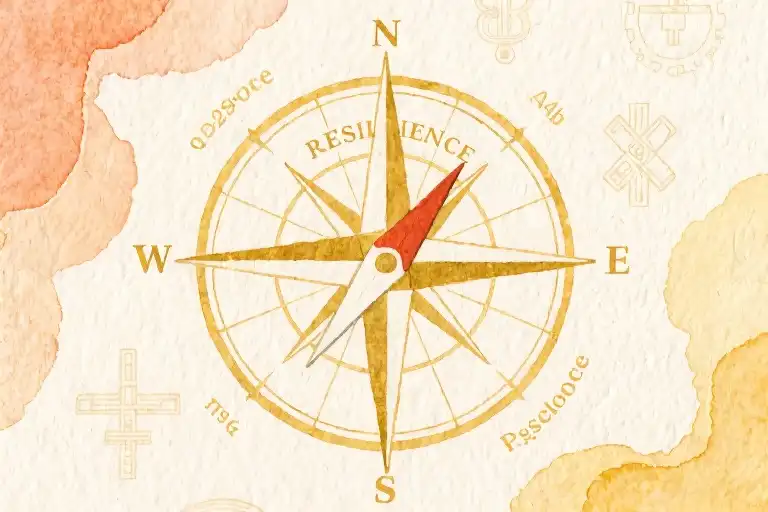The cafeteria noise was a symphony of adolescence—plastic trays clattering, sneakers squeaking on linoleum, the occasional burst of exaggerated laughter meant to be overheard. I sat at the far corner table, spine pressed against the cinderblock wall, with a library copy of The Phantom Tollbooth propped against a carton of chocolate milk. My fingers smelled of pencil lead and the school’s watchdogs—two arthritic mutts who napped by the bike racks—had left traces of their wiry fur on my sweater sleeve.
‘You’re weird,’ declared a voice above me. A basketball hovered near my book, its pebbled surface casting tiny shadows across Milo’s adventures. The boy holding it had that particular middle-school glow of someone who’d recently discovered Axe body spray. ‘Who reads at lunch? And why do you pet those gross dogs?’
I remember the exact sensation: warm milk carton condensation under my palms, the acidic tang of tater tots in the air, the way my heartbeat synced with the second hand of the wall clock behind him. I said nothing. Just turned a page with deliberate slowness, watching his confidence waver as my silence expanded between us like spilled ink. His sneakers shuffled backward first, then the rest of him followed.
That moment became a blueprint I’d encounter repeatedly—in job interviews where my freelance portfolio raised eyebrows, at family gatherings when I mentioned living in a converted van, during first dates that stalled after explaining my ‘nonlinear career path.’ Each time, I recognized that same flicker of panic when someone realizes you’re operating outside their mental filing system. Their eyes would dart as if searching for the correct societal folder: Quirky But Harmless? Temporary Rebel Phase? Needs Intervention?
What they couldn’t comprehend then—what so many still struggle with—is that some lives resist categorization by design. Like a document that won’t fit standard folders, we’re not misfiled; we’re evidence that the entire cabinet needs redesigning. This truth echoes through every unconventional choice: the artist turning down corporate stability, the single-by-choice aunt at family reunions, the entrepreneur working four-hour weeks. Our existence whispers a dangerous question—what if the script is optional?—and that’s when the world starts handing out red pens.
But here’s the secret they don’t teach in orientation: systems panic when you won’t be systematized. It’s not about you being wrong—it’s about their labels failing to stick. And that discomfort? That’s the sound of old paradigms creaking.
The Labeling Survival Guide
Our brains are wired for efficiency, and that includes how we process people. Neuroscience shows we categorize others within milliseconds – it’s an evolutionary shortcut that helped our ancestors quickly identify friend from foe. The amygdala, our brain’s alarm system, actually shows heightened activity when encountering behaviors that defy easy classification. This explains why that classmate years ago reacted with such discomfort to my lunchtime reading habits – his neural filing system encountered an unlabeled folder.
When Filing Systems Fail
Society operates like an overzealous office administrator with a compulsive need to sort everything into predefined categories. French sociologist Pierre Bourdieu called this “symbolic violence” – the way social structures invisibly enforce norms through subtle categorization. When someone resists easy labeling (that freelance artist who also does data science, or the corporate lawyer turned alpaca farmer), it triggers what sociologists term “classification anxiety.”
This manifests in predictable patterns:
- The Diagnostic Reflex: Assuming divergence indicates pathology (“Maybe you should see someone about that”)
- The Temporary Phase Theory: Dismissing choices as youthful rebellion (“You’ll grow out of it”)
- The Benevolent Correction: Unsolicited advice framed as concern (“Have you considered…?”)
- The Social Mirroring: Using peer pressure as normalizing tool (“Nobody else your age…”)
- The Bureaucratic Blockade: Institutional barriers to unconventional paths (loan denials, zoning laws)
- The Nostalgia Trap: Romanticizing traditional routes (“In my day, we…”)
The Anatomy of a Label
These reactions share common roots in what psychologist call the “certainty imperative” – our deep discomfort with ambiguous social signals. A University of Chicago study found people will actually misremember unconventional individuals as being more extreme in either direction (either dangerously rebellious or boringly conventional) just to fit them into existing mental categories.
But here’s what that filing cabinet metaphor misses: Human lives aren’t documents. They’re ongoing stories with the power to redraw category boundaries. Those school watchdogs I befriended? They didn’t care that animal companionship wasn’t in the adolescent social script. The books I read during lunch? They became the foundation for a writing career that defies traditional publishing routes.
Cognitive Liberation Exercise:
Try this reframing technique when facing labeling pressure:
- Identify the assumed script (“People should _ by age _“)
- Trace its origins (When/why did this expectation emerge?)
- Visualize alternatives (How do other cultures/time periods handle this?)
- Claim narrative authority (“I’m writing a different story”)
As you move through world as an “unfileable” person, remember: The discomfort others feel says more about their cramped mental filing systems than your life’s validity. Your existence isn’t a misfiled document – it’s a new folder waiting to be created.
Lives That Defy the Script
The Floating Home Experiment
Every morning at 6:23am, marine biologist turned digital nomad Elias watches sunrise reflections dance across his laptop screen from a houseboat docked in Amsterdam’s canals. His workday begins with the gentle rocking of water beneath reclaimed teak floorboards, a far cry from the sterile labs his PhD advisors envisioned.
“People assume I’m on permanent vacation,” he laughs, “but this 280-square-foot space holds my microscopy equipment, three income streams, and the best work-life balance I’ve ever had.” The economics surprise most skeptics: after selling his suburban condo, Elias’ living costs dropped 40% while productivity increased. His secret? “Geographical arbitrage” – leveraging cheaper mooring fees against high-value remote consulting work for European environmental agencies.
Professional Gaming: More Than Button Mashing
Twenty-nine-year-old Korean-American Jess Kim earns $217,000 annually competing in League of Legends tournaments – a figure that still triggers her relatives’ “when will you get a real job?” comments during holidays. What they don’t see: the 60-hour training weeks, nutritional coaching, and financial literacy that transformed gaming from rebellion to sustainable career.
Her budget breakdown challenges assumptions:
- 35% invested in index funds
- 20% allocated for career longevity (ergonomic equipment, sports psychology)
- 15% funding STEM scholarships for girls
“Traditional careers assume linear progression,” Jess notes. “Esports teaches you to monetize skills laterally – streaming, coaching, brand partnerships. My retirement plan has more dimensions than most corporate ladders.”
Rewriting Relationship Operating Systems
In a Brooklyn co-living space, architect Priya and neuroscientist Mark maintain what they call “a la carte intimacy” – romantic partners who consciously opt out of marriage while legally formalizing other commitments. Their 14-page living agreement (viewed 83,000 times on Google Docs) includes:
- Healthcare proxies granting hospital visitation rights
- Equity vesting schedule for their jointly purchased property
- Quarterly relationship audits with a mediator
“Marriage is a bundled package,” Mark explains. “We wanted to design our own terms for mutual care without assuming cultural defaults.” Priya adds: “When people ask why we’re ‘against marriage,’ they’re missing the point. We’re for intentionality.”
The Unseen Calculus of Unconventional Choices
These lives share three counterintuitive advantages:
- Forced financial creativity: Constrained resources breed innovative income streams (Elias’ canal-side Airbnb experiences, Jess’ gaming tutorial Patreon)
- Precision-built communities: Rejecting default networks leads to stronger intentional connections (Priya and Mark’s curated “chosen family” support system)
- Cognitive flexibility: Constant boundary-pushing develops antifragile problem-solving skills transferable to any crisis
As psychologist Dr. Naomi Voss observes in her study of “Post-Traditional Flourishing”: “Those navigating uncharted life paths often develop stronger executive functioning than their conventionally successful peers. The very friction society warns against becomes their competitive advantage.”
Your Turn: Drafting Alternative Blueprints
Consider these starting points for designing your own “off-script” elements:
- Geographical: Could a 3-month “test drive” of van life/digital nomadism reveal hidden cost efficiencies?
- Professional: What undervalued skill, when monetized directly (consulting, teaching, creating), might outperform traditional roles?
- Relational: Which societal relationship assumptions (holiday obligations, financial entanglement timelines) deserve re-examination?
“The most radical act,” as Elias reminds us from his floating office, “isn’t rebellion – it’s building something so clearly better that questions turn into curiosity.”
Building Your Anti-Conformity Defense System
Living unconventionally requires more than just courage—it demands a strategic approach to maintain your mental wellbeing while navigating social pressures. This section provides practical tools to strengthen your psychological resilience and handle challenging situations with grace.
The Cognitive Immunity Training (3-Step Method)
Step 1: Pattern Recognition
Begin by identifying the hidden scripts in everyday interactions. When someone asks “So when are you settling down?” or “Why don’t you get a real job?”, they’re not just making conversation—they’re reinforcing social norms. Keep a journal to document these moments, noting how often they occur and your emotional responses.
Step 2: Script Deconstruction
Every societal expectation has underlying assumptions. For the marriage question, the hidden script suggests:
- Life progression should follow a set timeline
- Romantic partnership equals success
- Singlehood indicates deficiency
Write these assumptions down and examine their validity for your personal context.
Step 3: Personal Narrative Reconstruction
Create alternative responses that reflect your authentic values. Instead of defensive explanations, try framing like:
“I’m currently focused on [meaningful project/self-discovery]. The right relationship will complement that journey when the time comes.”
Conversation Templates for Family Gatherings
Scenario 1: The Career Interrogation
Relative: “When are you going to find stable employment?”
Response Options:
- “I define stability differently—for me, it’s about [creative freedom/flexibility/purpose]”
- “Actually, my current projects allow me to [specific benefit], which aligns with my goals”
- “I appreciate your concern, but I measure success by [personal metric] rather than traditional markers”
Scenario 2: Lifestyle Choices
Relative: “Don’t you want a normal life?”
Response Options:
- “Normal is relative—what works for others might not work for me”
- “I’ve found happiness in designing life my way” (smile and change subject)
- “Could you define what ‘normal’ means to you?” (prompts reflection)
Emergency Toolkit for Social Pressure Overload
When the weight of expectations feels overwhelming, try these immediate relief strategies:
1. The Perspective Reset
- Visit spaces where your choices are normalized (artist communities, digital nomad hubs)
- Re-read journals documenting your reasons for choosing this path
- Review your “Why” statement (create one if you haven’t)
2. Sensory Grounding Techniques
- 5-4-3-2-1 Method: Identify 5 things you see, 4 you can touch, 3 you hear, 2 you smell, 1 you taste
- Temperature shift: Hold an ice cube or sip warm tea
- Texture focus: Carry a grounding object (smooth stone, textured fabric)
3. Community First Aid
Pre-identify:
- 3 understanding friends you can call without explanation
- 2 online communities sharing your values
- 1 inspirational biography of someone who lived unconventionally
4. The Pressure Release Letter
Write (but don’t send) a letter containing:
- All societal expectations weighing on you
- Why each doesn’t fit your truth
- What you choose to believe instead
Remember: Building cognitive immunity is an ongoing practice. Some days the pressure will feel lighter than others. What matters isn’t perfect execution, but maintaining your commitment to self-honesty. When doubts arise, return to your documented reasons and reconnect with your personal definition of fulfillment.
“The most radical act is choosing yourself unapologetically—repeatedly, consistently, especially when systems reward conformity.”
The Unfinished Manifesto
Some lives don’t come with instruction manuals. Some stories refuse neat endings. And that’s exactly where the magic happens – in the unwritten spaces between what society expects and what your soul demands.
People writing…
- Their resignation letters on cocktail napkins
- Love stories with more than two characters
- Business plans that include ‘nap time’ as KPI
- Obituaries that list laughter counts instead of assets
This is your invitation to the unfinished revolution. Not another self-help checklist, but a blank page with one prompt: What does your unconventional life look like when no one’s watching?
Your Turn to Write
In the comments below:
- Complete this sentence: “People building…” (share your nonstandard dream)
- Tag someone who needs this permission slip
- Copy-paste this minimalist manifesto:
*”I reserve the right to:
- Change the script mid-scene
- Measure success in sunsets
- File myself under ‘Miscellaneous’
- Grow in unpredictable directions”*
The Living Archive
Every month, we’ll feature the most surprising submissions in our “Anti-Resume” gallery – where career gaps become adventure stories and ‘failures’ transform into plot twists. Your unconventional choices might just become someone else’s permission slip.
(Visual break)
*”The most interesting people
I know didn’t know
what they were doing
most of the time.”
- Brian Andreas*
P.S. Still hesitating? Try this: For the next 24 hours, notice every time you shrink an honest answer to fit someone else’s comfort. Then…don’t.”





